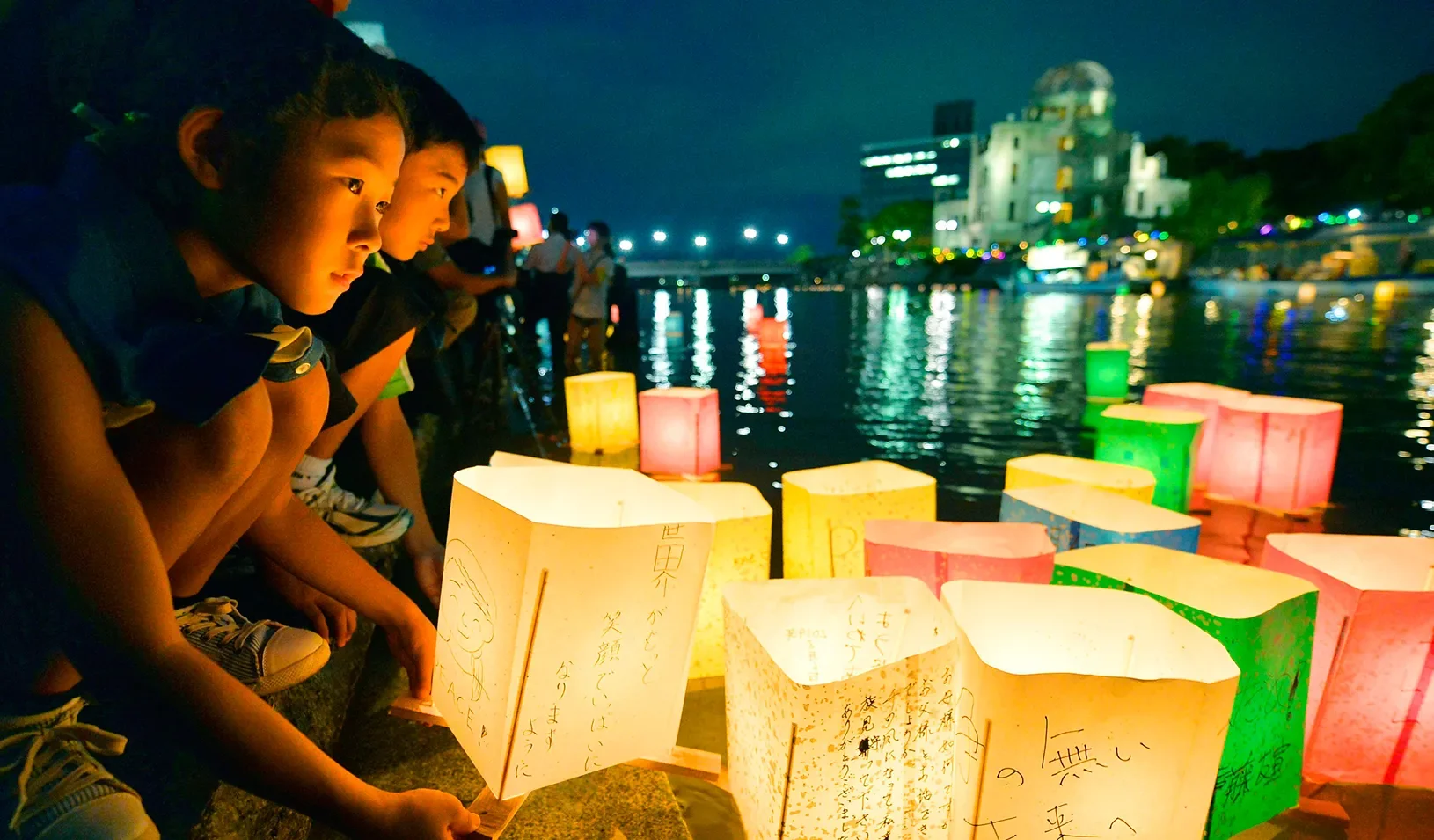February 05, 2015
| by Loren MooneyIn the face of rising global tensions, the governor of Hiroshima Prefecture is leading a charge for nuclear disarmament — and the payoff might just be a world free of nuclear weapons.
Not since the Cold War has there been a tougher time to advocate for global nuclear disarmament: Russia has been reinvesting in its nuclear arsenal amid aggression in eastern Ukraine, North Korea continues its program development despite United Nations resolutions, and negotiations between Iran, European nations, and the United States over Iran’s nuclear program have stalled.
But Hidehiko Yuzaki, governor of the Japanese state of Hiroshima, believes that you can’t wait to solve all the diplomatic problems in the world before going down the road of nuclear disarmament. And, if anything, it’s even more important to keep the issue alive in trying times.
“Right now, there are many nuclear weapons,” he says. “But we need to be forward looking, and construct our activities now to increase our influence … to abolish nuclear weapons in the future.”
To that end, in 2011 Governor Yuzaki formed the Hiroshima for Global Peace Plan, a project advocating for global peace building and the abolition of nuclear weapons. Since its inception, the program has raised the profile of the humanitarian issues around nuclear weapons and issued expert evaluations of key nations’ performance in meeting their obligations under the international Nuclear Non-Proliferation Treaty (which came into force in 1970 and today has 190 member states).
This year promises to be a significant one for the project: In April, it will present its latest recommendations to the U.N. NPT Review Conference, held every five years. And Aug. 6 marks the 70th anniversary of the Hiroshima bombing.
It may seem unlikely for a local governor to take an active leadership role in a long-term mission advocating for international peace and nuclear disarmament, rather than focusing exclusively on urgent regional issues. But for Yuzaki it is an identity-based mission, partly influenced by his father, a scholar who studied the experience of the hibakusha, as survivors of the atomic bombings of Hiroshima and Nagasaki are called. “Today their average age is about 80, and soon there will be no survivors,” Yuzaki says. “If this turns into the loss of memory, then Hiroshima will lose influence. And it is the responsibility of government of the prefecture, which includes this devastated area, to fulfill the wish of nuclear abolition on behalf of those who suffered from the bombing. We need to do that, and we will keep going until we have impact.”
The wish of nuclear abolition is a reasonable and rational one, but the path to achieving it is obviously long and complicated.
“The governor is too much of a realist to think that Hiroshima can change global politics overnight, that pointing out the horrors of nuclear war are going to cause the leaders of North Korea, Russia, and the United States to abandon their weapons,” says Stanford political science professor Scott Sagan, a senior fellow at Stanford’s Center for International Security and Cooperation. “But he’s also enough of a realist to recognize that when people come to Hiroshima, it influences them — suddenly nuclear weapons are not an abstract phenomenon, but a reality that can, today, kill many millions of people. Seeing that reality can change people’s views.”
So far, Hiroshima for Global Peace has focused on track-two diplomacy, gathering former foreign ministers, specialists, and academics (including Sagan) who aren’t beholden to political agendas to build consensus on reasonable measures that, even during politically tense times, can contribute to eventual mutual disarmament, such as stockpile stewardship to prevent accidents or funding for improved methods of verifying compliance with the NPT. “We have a candid discussion, and from there would like to push our arguments toward first track, and get it on the governments’ table,” says Yuzaki. “One power we have is our name, Hiroshima. People do not hesitate to meet with us.”
While the global political influence will come slowly, the program — which consists of more than a dozen experts from Japan, the United States, Australia, China, and South Korea who volunteer their time — serves a vital purpose now, Sagan says. It and other advocacy groups serve as a constant reminder for nations to keep disarmament at the forefront of policymaking, that progress can be made even when tensions are high.
The Hiroshima for Global Peace Plan has had an impact on Hiroshima itself, helping to shift the global view of the region from a place of tragedy and memory of the atomic bombing to a future-oriented place of hope and action toward disarmament.
Hidehiko Yuzaki is serving his second term as governor of Hiroshima Prefecture, Japan. He earned his MBA from Stanford GSB in 1995, then founded ACCA Networks, a broadband telecom carrier in Japan.
For media inquiries, visit the Newsroom.






